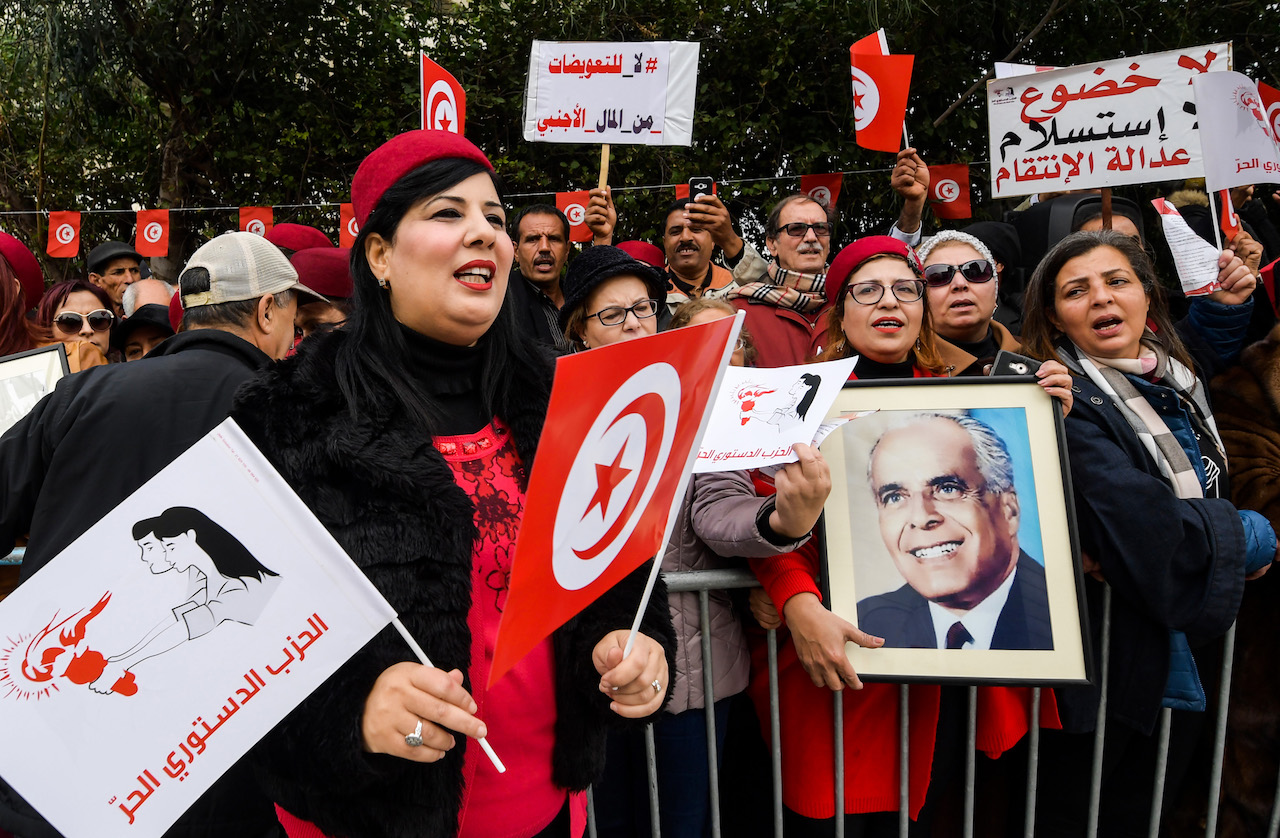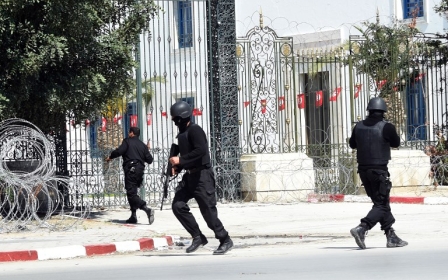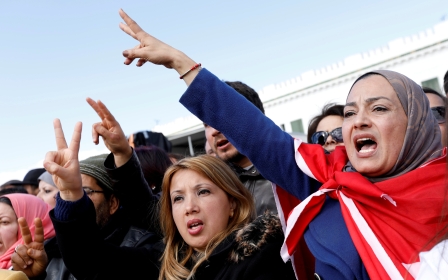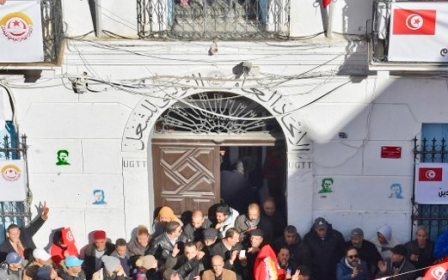Tunisian tribunal calls for 'apology' over abuse and torture since 1955
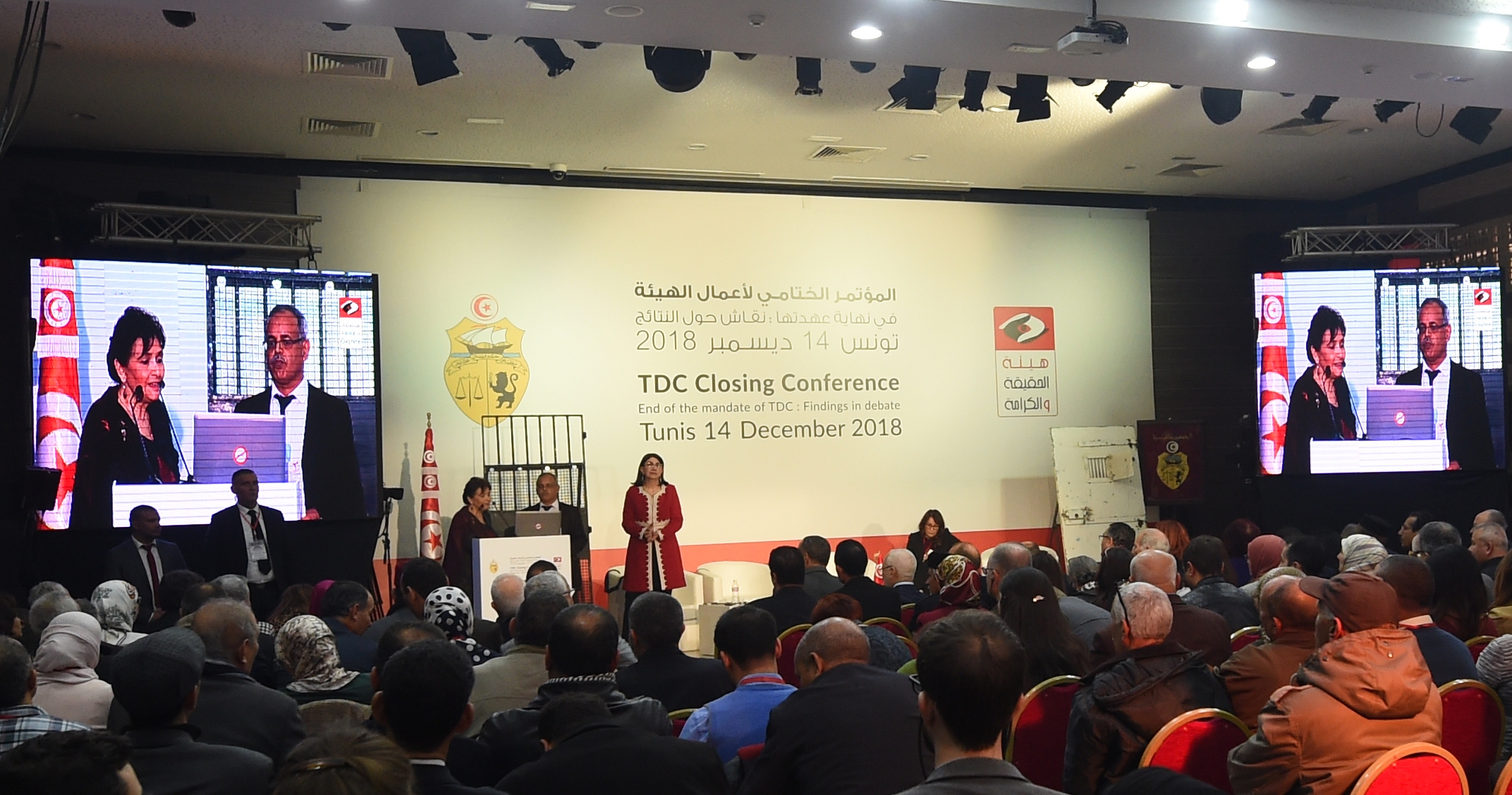
A Tunisian tribunal probing human rights violations committed by the administration of former President Zine El Abidine Ben Ali has called for reforms and an apology from the current president, who was himself implicated in torture.
The Truth and Dignity Commission (IVD), established three years after the 2011 uprising that ousted Ben Ali, said that President Beji Caid Essebsi needed to issue an apology as "a symbol of the state" for the abuses committed since 1955, one year before the country achieved full independence.
The report released by the body on Tuesday called for the government "to dismantle a system of corruption, repression and dictatorship" still embedded within state institutions.
It also proposed measures to boost the independence of magistrates and administrative courts, as well as legal protection for victims and witnesses in corruption cases.
According to the report, Tunisia's security forces should be restructured to increase transparency and prevent their use for political ends, with an independent body set up to oversee the police as well as an intelligence service answering directly to the president under parliamentary supervision.
The IVD proposed that its archives on violations, based on tens of thousands of interviews it carried out and cases studied, be opened "to preserve the national memory for future generations".
Amnesty International hailed the publication of the report as "a watershed moment for Tunisia".
"Tunisia’s authorities must take concrete steps to implement the Truth Commission’s recommendations and finally break the pattern of impunity that has marred human rights progress for decades," said Fida Hammami, Amnesty’s researcher on Tunisia.
Essebsi complicity
In December, the IVD said it had uncovered 62,720 cases of abuse committed between 1955 and 2011.
At least 173 cases have since been referred to a network of specialised courts intended to trial those accused.
Among the former administration officials implicated in the report, Essebsi was accused by the report of having overseen mass arrests and show trials in the wake of a failed 1962 coup.
The report said that those “acting on behalf of or under the protection of state agencies” were responsible for actions committed under their watch.
Essebsi, 92, held numerous positions under Ben Ali, including a stint as foreign affairs minister between 1981 to 1986.
He has criticised the work of the IVD, stating in 2014 that he was "against settling accounts in the past" and that "Tunisia needs to move forward".
Protests have taken place against the IVD by supporters of Ben Ali and former president Habib Bourguiba, who is still praised by some as Tunisia's first republican post-independence ruler.
Current Tunisia Prime Minister Youssef Chahed has also been unwilling to meet with representatives of the IVD, who said they had been unsuccessfully attempting to present the report to him since December 2018.
“The prime minister’s apparent unwillingness to receive the Truth Commission’s report is deeply worrying and raises concerns over the government’s commitment to the transitional justice process,” said Fida Hammami.
Middle East Eye propose une couverture et une analyse indépendantes et incomparables du Moyen-Orient, de l’Afrique du Nord et d’autres régions du monde. Pour en savoir plus sur la reprise de ce contenu et les frais qui s’appliquent, veuillez remplir ce formulaire [en anglais]. Pour en savoir plus sur MEE, cliquez ici [en anglais].


